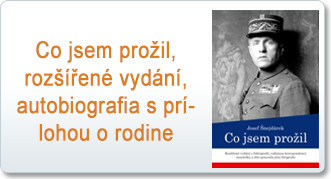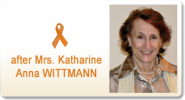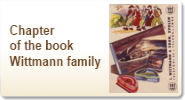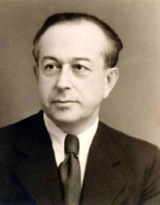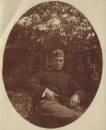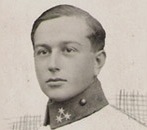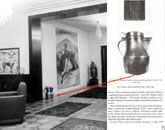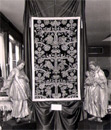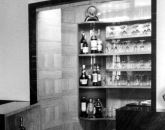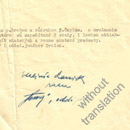Adalbert (Vojtech, Béla) Wittmann
was born in Zvolen in 1899. The former owner of the large Dairy concern
I.Wittman & son.
With his wife Marie
(nee Schneidarek) had a son Peter (businessman in Brazil) and a daughter
Katharine Wittmann
who was since 1991 in business in Slovakia.
A separate publication is being compiled which will describe Vojtech Wittmann’s life, antifascist resistance, activities in the I.W.S company and in the Slovak Dairy Industry.The Wittmann family would be grateful for any information, photographs, recollections, that would shed light on this bit of history. The family wishes to express it’s sincere thanks to all those individuals who were kind enough to come forth and contribute with whatever memorabilia, to this fragmented mosaic of it’s past.
I.W.S. documentation and valuable information kept in it’s archives was “lost” during the totalitarian era. The local State museum that confiscated artifacts from “the Wittmann private collection” without numerical classification does not have a photograph of Vojtech Wittmann and cannot find the bust of his likeness that it confiscated in 1948. See relevant documentation from the year 1949 further on this page.
Vojtech Wittmann
Was educated in the dairy sciences and was fluent in addition to the Slovak language, in German, Hungarian and Czech. He could communicate
in French and later, after his immigration to Canada, in English.
He was a man of high integrity with a close affinity for all that was progressive. This was evident in his introduction of pasteurization
and building of an in-house laboratory for growing dairy cultures. His request in 1924 for a permit to mount a radioelectric radio receiving
station was turned down by the district officials. In 1934 he was nominated to the board of directors of the High Tatras’ skiing association.
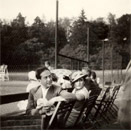
|
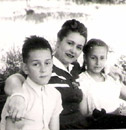
|
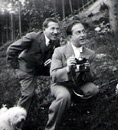
|

|
| Attending a tennis tournament in Sliac with his wife | Marie Wittmann with son Peter and daughter Katharine 1948 | In the country side before W.W. II. | He wanted to be an artist |
His close attachement to local culture and Slovak traditions was evident in his collection and restoration of historical artifacts, the décor of his home and the packaging and labeling of his company’s products. As a young man, he wanted to be an painter (he continued with this passion in Canada) but since his older brother Karol chose a career in medecine, a decision was made by Ignac Wittmann making Vojtech his successor.
Vojtech Wittmann’s traits of integrity and honour also included a most congenial relationship with his employees and a deep sense of social justice. Guided by these attributes he later became a member of the Social Democratic Party.
Two world wars severly curtailed the business activities of the Wittmann family. Especially during W.W. II when the dairy was under the
management of the war time Slovak State, (manager Babala followed by Buchta). Vojtech Wittmann was personally involved in the illegal resistance against Nacism and after the suppresion of the National Uprising, he and his immediate family went into hiding.
After the war in 1945 the property was returned, however after the coup in 1948 it was confiscated by the State.
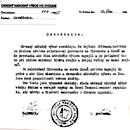
|

|

|

|
| antifascist resistance | Future of the Slovak Dairy Industry through the eyes of V. Wittmann | V. Wittmann describes his escape | Excerpt from his farewell letter to his employees |
In the summer of 1944 Vojtech Wittmann completed a small pamphlet “Smernice pre budúci vývoj slovenského mliekarenstva.” (Guidelines for
future advancement of the Slovak Dairy Industry). The only existing original is on loan to former Minister of Agriculture P. Baco, by the
Wittmann family. Its contents were visionary, ahead of their time and so very optimistic. In 1947 he invested his total financial resources
into the building of the new, state of the art dairy plant and in 1949 he clandestinely and penny less left Czechoslovakia, crossing the
border to Austria on a bycicle.
The farewell letter he left to his employees was made public only after 1989. Unlike many other Slovak expatriates , his material existence
in Canada, until his death, was most difficult.
* Those that came to compile the inventory of the homes contents, very conscientiously recorded kitchen flatware, preserves, children’s toys etc but nowhere are there mentioned the wines, the spirits and smoked Hungarian salami which probably served to wet their parched throats and fill their stomachs.
After the state confiscated the Wittmann dairies and planned the owners relocation to a dairy plant in Trencin, the family left the country and went into exile. For this act, Vojtech Wittmann was convicted of a crime against the state in absentia. Underlined and translated are those parts of the verdict which best epitomize the felonious vocabulary of the Communist judges of that period.

|
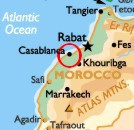
|
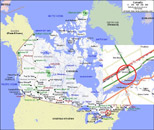
|
| sentence - page 2, causes | temporary home after the escape | new home in Canada |

